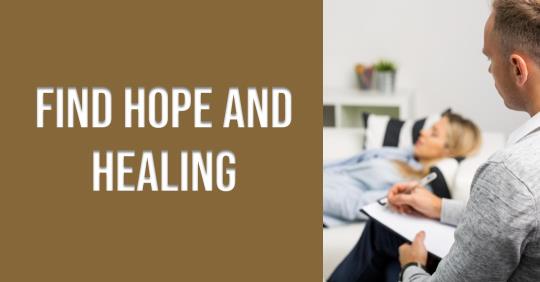Benzodiazepine dependence has increased as this sedative drug is both legal and typically prescribed by doctors to help manage different medical conditions.
Benzodiazepine prescription medications are usually used with other types of drugs or alcohol; making benzodiazepine dependence very dangerous as the risk of overdose increases.
Recovering from dependence on benzodiazepine drugs, like all addictions, can be pretty tricky. The team of medical professionals at Aspen Behavioral Health has years of knowledge and expertise to help you on your journey to sobriety.
What is benzodiazepine dependence?
Benzodiazepine drugs are classified as prescription tranquilizers. They can be broken down into two categories either sedatives or anxiolytics. Physical dependence, psychological dependence, and cognitive impairments can occur if a benzodiazepine use disorder can become an addiction without medical supervision.
Generally, benzodiazepine drugs help manage certain medical conditions and psychiatric conditions such as anxiety or panic disorders.
Here is a list of other conditions that benzodiazepine is prescribed for:
- anxiety disorders, treatment of insomnia
- seizures, muscle relaxation, muscle pain
- as part of a treatment plan for alcohol use disorder recovery
Here is a list of common benzodiazepine brand names:
- Niravam
- Ativan
- Xanax
- Librium
- Klonopin
- Valium
- Halcion
- Restoril
- Tranxene
- Alprazolam
Am I dependent on benzodiazepine?
Benzodiazepine dependence or benzo dependence are a group of prescription sedative drugs designed to have a calming effect on the person. This sense of calming has allowed high addiction rates to appear for benzodiazepine dependence.
Benzodiazepine abuse has led to a whole host of physical dependence, psychological dependence, and behavioral problems. Below is a list of typical benzo dependence symptoms:
- weakness, blurred vision, sudden mood changes
- drowsiness, poor judgment, or thinking
- doctor shopping (asking multiple doctors to provide the needed drugs)
- constantly asking friends/family/acquaintances to help supply benzodiazepine pills
- trying to stop different types of abuse but not being able to
- risk-taking behaviors, such as driving after abusing benzodiazepines
- using benzodiazepines with alcohol or other types of drugs
As a person continues to use benzodiazepine, their tolerance will increase, meaning they will need higher dosages to get the same high.
What are the possible causes of benzodiazepine dependence?
Benzodiazepine abuse seems to occur when a person has an existing dependence on alcohol or possibly other drugs The National Institute on Drug Abuse has reported that benzodiazepine is rarely the only drug of choice for many users.
The AAFP (American Academy of Family Physicians) did a study that found several key points about benzodiazepine abuse:
- benzodiazepines are not typically the only drug of choice
- about 80% of benzodiazepine users are also polydrug users, using opioids along with benzos
- 15% of heroin users were also taking benzodiazepines every day for over a year
- 73% of heroin users were mixing benzos with heroin every week
- studies also found that 5% to 90% of methadone users were regularly mixing methadone with benzodiazepine together
- Studies for alcoholics found that 3% to 41% were abusing benzodiazepine with alcohol regularly[xxxiv]
- estimates state from the American Family Physician state that about 80% of alcoholics who are younger than 30 years old are addicted to more than one drug
Benzodiazepine has strong sedative effects, which makes the possibility of dependence relatively high and ideal for addiction.
It is important to remember that benzodiazepines are legal prescription drugs that may be used initially for genuine medical purposes. Over time there is a risk of some use disorders developing.
Consistently following the doctor’s prescription instructions can help avoid the chance of becoming dependent on benzodiazepine.
When should I consider getting clean from benzodiazepine dependence?
The community of mental health professionals specializing in dealing with substance abuse issues uses the terms hypnotic, sedative, or anxiolytic use disorder to describe benzodiazepine abuse disorders.
These three terms are used to help locate different physical symptoms, understand what type of risk factors are at stake, and how treatment centers can help the patient recover.
Recently the National Association of Addiction Professionals has provided a list of five critical symptoms for benzodiazepine dependence which are found below:
- if you find you are taking benzodiazepine in higher dosages than prescribed by your doctor
- if you are spending a significant amount of time either every day or week looking for more benzodiazepine pills
- if you begin to experience various withdrawal symptoms leading to a craving for the drug
- if overtime a higher dosage is needed so that the same level of euphoria can be reached
- if there is a decline in job performance or acting differently around family and friends
Benzodiazepine use disorders create a noticeable change in how someone would typically work. This change can cause someone to do things that would be out of character for them.
Benzodiazepine dependence cause changes in a person’s behavior which are symptoms of substance abuse. Below is a partial list of these symptoms:
- the person will cut ties with their family, friends, and other responsibilities to keep using the drug
- the person will begin doing things that were out of character for them, such as stealing or borrowing money, draining their own or others’ bank accounts, and maxing out credit cards
- an increased pattern of risky behaviors such as driving while under the influence of the drug
- the person begins to stop showering regularly
- they begin to be quite secretive about their daily schedule and the people they hang out with to protect their substance abuse
- they experience dramatic and sudden shifts in their mood
Benzodiazepine dependence is not highly dangerous, but the results can be deadly when mixing in other drugs and alcohol. Recovery experts state that recovery is possible for those looking to recover with the right type of help and support.
What are some signs of withdrawal symptoms from benzodiazepine dependence?
Benzodiazepine dependence withdrawal typically has three phases, the first being early withdrawal, the second being acute withdrawal, and the third being protracted withdrawal.
The first stage of early withdrawal begins within just a few hours to sometimes days of the person stopping the use of benzodiazepine; this phase can last up to a few days. Patients may experience the return of high levels of anxiety and signs of insomnia as their brain and body adjust from not using benzo.
Next, the second state of acute withdrawal may begin with the following withdrawal symptoms:
- anxiety, panic, insomnia, hallucinations
- muscle spasms or tension, seizures, nausea or vomiting, diarrhea
- blurred vision, trouble concentrating, short-term memory impairment, clouded thinking
- mood swings, agitation, drug cravings, twitching and weight loss from a lower appetite level
During this second phase, medical professionals use specific medications to help ease the symptoms being experienced by the patient.
It is important to note that some patients begin having thoughts of suicide as withdrawal symptoms become more intense during this second phase. Treatment centers have found that using behavioral therapies and support groups can help when this happens. This third phase, also known as the protracted phase, can last anywhere from two weeks to several months for some patients with more severe withdrawal symptoms. Studies have found that about 10% of patients tend to experience withdrawal symptoms for several months all the way to even years after stopping their drug use.
Those recovering have stated that they sometimes have:
- a tingling sensation in their arms and legs
- occasional muscle twitches, feelings of anxiety, insomnia
- problems around thinking and memory
- issues with depression and mood swings
These withdrawal symptoms tend to appear suddenly without any warning. Mental health services and support groups can help during the detox process with programs tailored to the patient’s specific needs.
Mental health disorders may also appear during the withdrawal stage, typically called co-occurring disorders. These disorders require specialized treatment that can handle two diagnoses which have been helpful in the success of a patient’s ability to achieve their sobriety.
How do I get help for benzodiazepine dependence?
The journey to sobriety does not have to be done alone. Many resources are free and confidential to help support you:
Talk to a recovery professional at Substance Abuse and Mental Health Services Administration Helpline: 800-662-HELP (4357)
The team at Aspen Behavioral Health is here to support you on your journey to recovery. Let our team of experts and professionals guide you as you work towards your sobriety.
Suppose you or you know someone fighting opioid or prescription drug dependence. In that case, Aspen Behavioral Health has various treatment options that can be tailored to your specific needs and medical history.
Aspen Behavioral Health, located in sunny West Palm Beach, is a rehab center that helps people regroup, detox, and find support as they start their journey to sobriety. Take that first step and talk to one of our Aspen Behavioral Health specialists today.
Sources:
American Addiction Centers, “Benzodiazepine Addiction: Symptoms & Signs of Dependence”, July 23, 2021, Retrieved from americanaddictioncenters.org/benzodiazepine/symptoms-and-signs
American Family Physician, “Addiction: Part I. Benzodiazepines—Side Effects, Abuse Risk and Alternatives”, April1, 2000, Retrieved from www.aafp.org/afp/2000/0401/p2121.html
US National Library of Medicine National Institutes of Health, “Management of benzodiazepine misuse and dependence”, October 1, 2015, Retrieved from www.ncbi.nlm.nih.gov/pmc/articles/PMC4657308/



